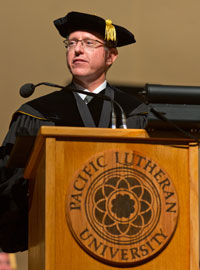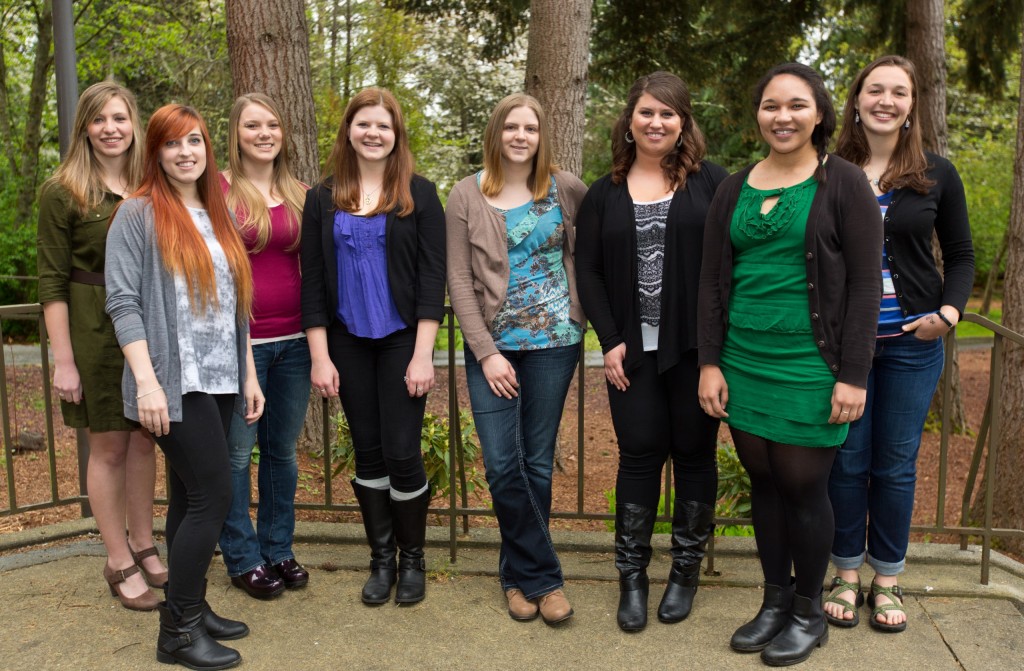Page 44 • (441 results in 0.112 seconds)
-
with strong bonds to fundamentalist and Pentecostal subcultures, many of which traditionally have focused their identity around intentional resistance to new ways of thinking. Secondly, the dominant student culture at PLU is relentlessly anti-intellectual. Both factors militate against the purposes of the liberal arts and the mission of the university. PLU’s credibility as a university in the twenty-first century will depend in large part on the way faculty, students, and administrators handle
-

| Exhibition Opening May 1 | 4:00 p.m. | Scandinavian Cultural Center Student curated exhibition about the Labor Rights Movement in the US and Scandinavia. Sex +: Q&A with the Sexperts! May 2 | 6:00 | Diversity Center Join Allena Gabosch, Director of the Center for Sex Positive Culture in Seattle, and Kim Riano, Director of PLU’s Health and Counseling Centers, for a no holds barred conversation answering ALL of your questions about sex and sexuality. There will be opportunities to submit your questions
-

.” The organization offers a moral response to the ecological destruction that accompanies climate change’s threats, particularly to vulnerable, frontline, and marginalized communities, Schwartz says. “So much of climate change is driven by science and research, without putting people, community and culture at the forefront. There are human impacts of climate change that need to have their story heard and represented.” Schwartz notes that nearly 70% of Black people live or have lived within 30 miles
-
feminism in pop culture, Broad Strokes offers an entertaining corrective to that omission. Art historian Bridget Quinn delves into the lives and careers of 15 brilliant female artists in text that’s smart, feisty, educational, and an enjoyable read.”–publisher’s description Hildegard of Bingen (ML410.H618M43 2018) “A Renaissance woman long before the Renaissance, the visionary Hildegard of Bingen (1098-1179) corresponded with Europe’s elite, founded and led a noted women’s religious community, and
-
?” [emphasis mine], to which Georgiana responds with “Utterly”. Perhaps romantic on a surface level, the word “capture” juts out in a deeply unsettling way. As the late, influential bell hooks writes in Feminism is for Everybody: Passionate Politics: “[l]ove in patriarchal culture was linked to notions of possession, to paradigms of domination and submission wherein it was assumed one person would give love and another person receive it” (101). Charles sets up this dichotomy through painting Georgiana: he
-
to the culture of care. As you do so in this particular time in our society’s life, please focus on ways to overcome our racial divisions, and help heal our communities, large and small, and to be kind and compassionate to one another. I hope that you will find caring faculty members and fellow students who are committed to doing the important work of — once and for all – righting the wrongs of our society and paving the way to a world where all are treated with respect and dignity. I wish
-
Katherine Voyles’s essay outlines, this place of questioning is also one of learning. Isolating stills from their context can hide larger narratives in Mary-memes, yet memes can open up new avenues for thought even without context. For example, this @savedbythebellhooks post does just that: "Feminism is not simply a struggle to end male chauvinism or a movement to ensure that women will have equal rights with men; it is a commitment to eradicating the idology of domination that permeates Western culture
-
which the intellectual historian Leonard Krieger, in his recent book Time’s Reasons: Philosophies of History Old and New (1989), speaks of a contemporary “crisis” of faith in the notion of historical truth. He writes: The most potent contemporary influence on the discipline of history . . . is the challenge to the very substance of the historical approach to life that has been mounted by antithetical agents of the general culture. What is new and especially lethal in the current rejection of history
-

measure up to these standards that the world needs more PLU. Institutions like PLU not only help create the future—by teaching you to be creators of new knowledge—but we also preserve, conserve, memorialize, and celebrate culture and achievement. Many of the buildings and halls and classrooms you’ll be living and learning in bear the names of those who have made a difference in the world, and who wanted to give you the chance to make a difference. They know what you are sure to discover: college
-

. … That’s what makes PLU great and what makes Lutes outstanding individuals—there’s a real connection between faculty and staff within the PLU culture to not only educate for careers, but to educate for life through the development of hard and soft skills. I owe a lot to the PLU community and hope to be able to give back in some way in the future.” CAITLIN ZIMMERMAN Hometown: Wilsall, Mont. Major: Communication/Conflict Management. Graduation date: May 2014 Peace-building experience: In 2012, Zimmerman
Do you have any feedback for us? If so, feel free to use our Feedback Form.


